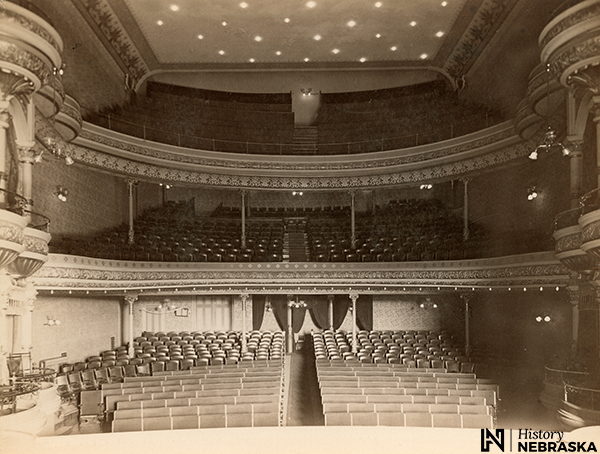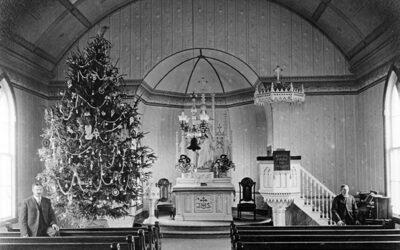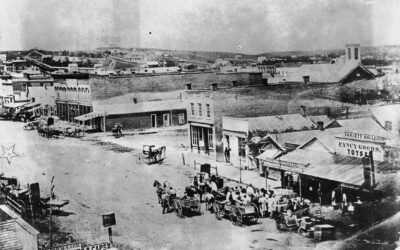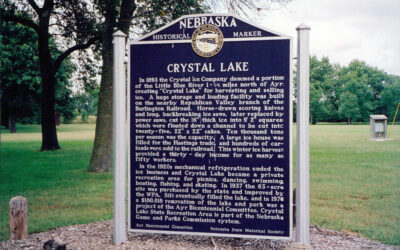Opera houses provided entertainment and culture in small towns throughout Nebraska between 1880 and 1920.
Was opera really that popular?
It’s true that opera and classical music were considered the pinnacle of musical culture. It’s also true that frontier towns didn’t want to remain frontier towns. They wanted to be respectable and prosperous. That meant welcoming high culture—at least the wealthier citizens tended to think so.
But most entertainment in so-called opera houses was not high opera. Many of the musical productions were based on popular music of the day. Plays were performed by “stock companies,” actors who prepared a repertory of presentations during the summer and toured them during the season, which ran from September through May.
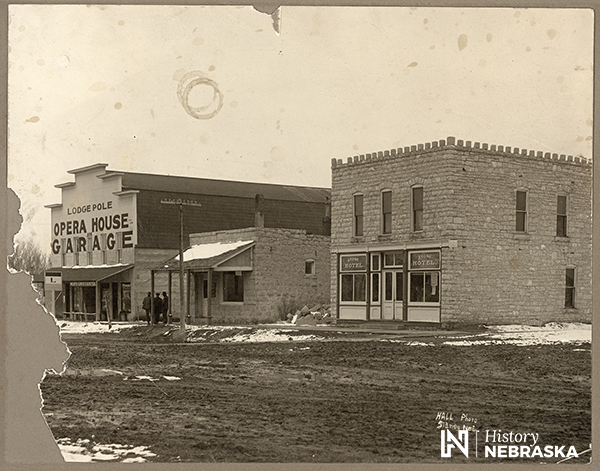
Vaudeville first appeared as a diversion between acts of stock company plays. It eventually replaced legitimate theater as the standard fare offered at many opera houses. Other programs included minstrel shows, specialty acts, and lyceum (lecture) courses.
Omaha and Lincoln audiences regularly saw contemporary entertainment stars. Actors and plays of national and international renown arrived several times each month for runs of several days. Smaller communities such as Fremont, Grand Island, Hastings, and Kearney often booked these top attractions for one or two nights, trading on their strategic rail line locations between Kansas City, Omaha, Denver, and Minneapolis.
In the late 19th century, booking agencies known as lyceum bureaus offered small towns yet another entertainment option. They could purchase a season of four to six musical performances or lectures for a set price, usually $500 for the whole package. Nebraska opera houses also sponsored many community activities such as home talent productions, dances, political meetings, school plays, “declamatory” (speech) contests, and athletic events. Often the opera house was the only facility in town large enough to accommodate the crowds.
A combination of circumstances caused the demise of the opera house. In 1896 a group of New York businessmen formed a syndicate to control theatrical productions and the theaters. The syndicate overpowered the small stock companies which had catered to Midwestern opera houses. Later, movies replaced live entertainment. Opera houses not adapted for use as movie theaters were eventually closed.
In recent decades, some of Nebraska’s surviving opera houses have been restored and once again serve their communities as multi-purpose auditoriums.
